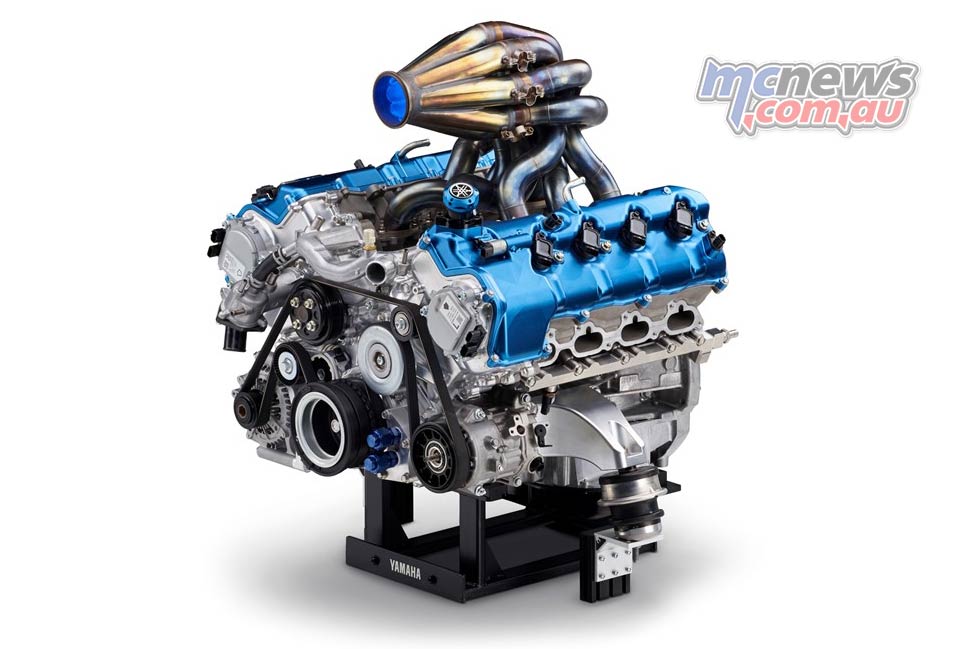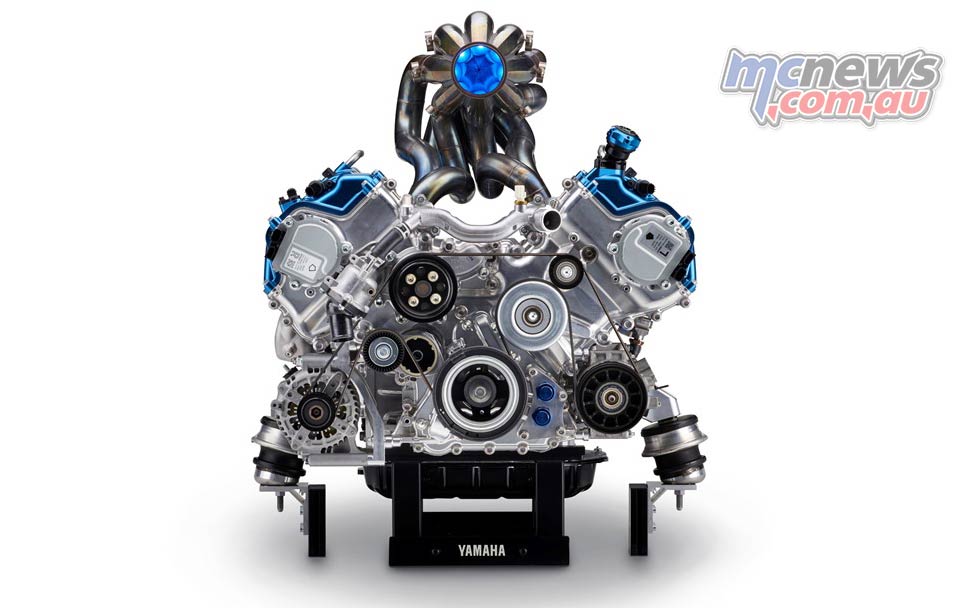Hydrogen to power a Yamaha tuned V8 symphony
Yamaha have a long history of lending their engine building know-how to car makers going back more than four decades with the release of the Toyota 2000GT in 1967. That partnership continued with Yamaha supplying engines for various Lexus and Toyota models right up to the present day. Yamaha have also supplied engines to Ford and Volvo and in the 90s also provided Formula One engines to the likes of Brabham, Tyrrell, Jordan and Arrows.
Now Yamaha has been commissioned by Toyota to develop a 5.0-litre V8 fuelled entirely by hydrogen. In Japan, Toyota and other automotive-related companies are about to begin a collaborative effort to expand the range of fuel options for internal combustion engines.
Kawasaki Heavy Industries and Yamaha Motor have also started considerations toward the joint development of a hydrogen engine for possible use in two-wheeled vehicles. Going forward, they are planned to be joined by Honda Motor Co., Ltd. and Suzuki Motor Corporation, and the four companies intend to jointly explore the possibility of achieving carbon neutrality through the use of internal combustion engines in two-wheeled vehicles. To maintain a distinct line between cooperation and competition, they intend to proceed after establishing a framework that will clearly define areas of cooperation and collaborative research.
Toyota is now collaborating with Fukuoka City, which is to supply Toyota hydrogen derived from sewage biogas. Since 2015 and as a world first, Fukuoka City has been taking on the challenge of producing and commercialising hydrogen from domestic wastewater sewage. The city is producing non-CO2-increasing green hydrogen from biogas generated during sewage treatment at the Fukuoka City Chubu Water Treatment Center and has a daily hydrogen production capacity of 3,300 Nm3 (which is roughly equivalent to the daily amount of hydrogen used by 60 units of the Toyota Mirai hydrogen fuel cell electric vehicle, based on a per-unit daily hydrogen requirement of 55 Nm3). The city is also conducting verification tests with corporate partners, such as supplying green hydrogen to fuel cell-powered trucks, motorcycles, and power supply vehicles.
Yamaha began developing a hydrogen engine for automobiles about five years ago. Takeshi Yamada from the Technical Research & Development Center’s Automotive Development Section is a member of the hydrogen engine development team and he began to sense the depth of potential in the powerplant as the project progressed.
“I started to see that engines using only hydrogen for fuel actually had very fun, easy-to-use performance characteristics,” Yamada explains. “Hydrogen engines have an innately friendly feel that makes them easy to use even without resorting to electronic driving aids. Everyone who came to test-drive the prototype car would start off somewhat skeptical, but emerged from the car with a big smile on their face at the end. As I watched this, I started to believe that there is actually enormous potential in the characteristics unique to hydrogen engines instead of simply treating it as a substitute for gasoline.”
In November last year, the five companies of Kawasaki Heavy Industries, Subaru Corporation, Toyota Motor Corporation, Mazda Motor Corporation, and Yamaha Motor jointly announced they would begin discussions for conducting collaborative research into possible avenues for expanding the range of fuel options for internal combustion engines in the quest for carbon neutrality.
 And at the announcement venue, the V8 hydrogen engine shown above, which was developed by Yamaha for Toyota, was unveiled to the public. The unit is based on the 5.0-litre engine in the Lexus RC F luxury sport coupe, with modifications made to the injectors, cylinder heads, intake manifold, and more, and delivers up to 450 hp at 6,800 rpm and a maximum 540 Nm of torque of at 3,600 rpm.
And at the announcement venue, the V8 hydrogen engine shown above, which was developed by Yamaha for Toyota, was unveiled to the public. The unit is based on the 5.0-litre engine in the Lexus RC F luxury sport coupe, with modifications made to the injectors, cylinder heads, intake manifold, and more, and delivers up to 450 hp at 6,800 rpm and a maximum 540 Nm of torque of at 3,600 rpm.
Yamaha Motor President Yoshihiro Hidaka
“We are working toward achieving carbon neutrality by 2050, at the same time, ‘Motor’ is in our company name and we accordingly have a strong passion for and level of commitment to the internal combustion engine. Hydrogen engines house the potential to be carbon-neutral while keeping our passion for the internal combustion engine alive at the same time. Teaming up with companies with different corporate cultures and areas of expertise as well as growing the number of partners we have is how we want to lead the way into the future.”
Another thing that Yamada and the team value in the development process is Kanno Seino, meaning sensual or exhilarating performance. One example is the harmonic high-frequency exhaust note produced by the engine’s 8-into-1 exhaust manifold. “This is a challenge we can sink our teeth into as engineers and I personally want to pursue not just performance but also a new allure for the internal combustion engine that the world has yet to see,” declares Yamada.
What he and his fellow engineers believe in is the potential of a fully hydrogen-powered engine. Working together with his gradually expanding network of partners, Yamada undoubtedly feels they have one hand on the door to unlocking that potential.
Source: MCNews.com.au

